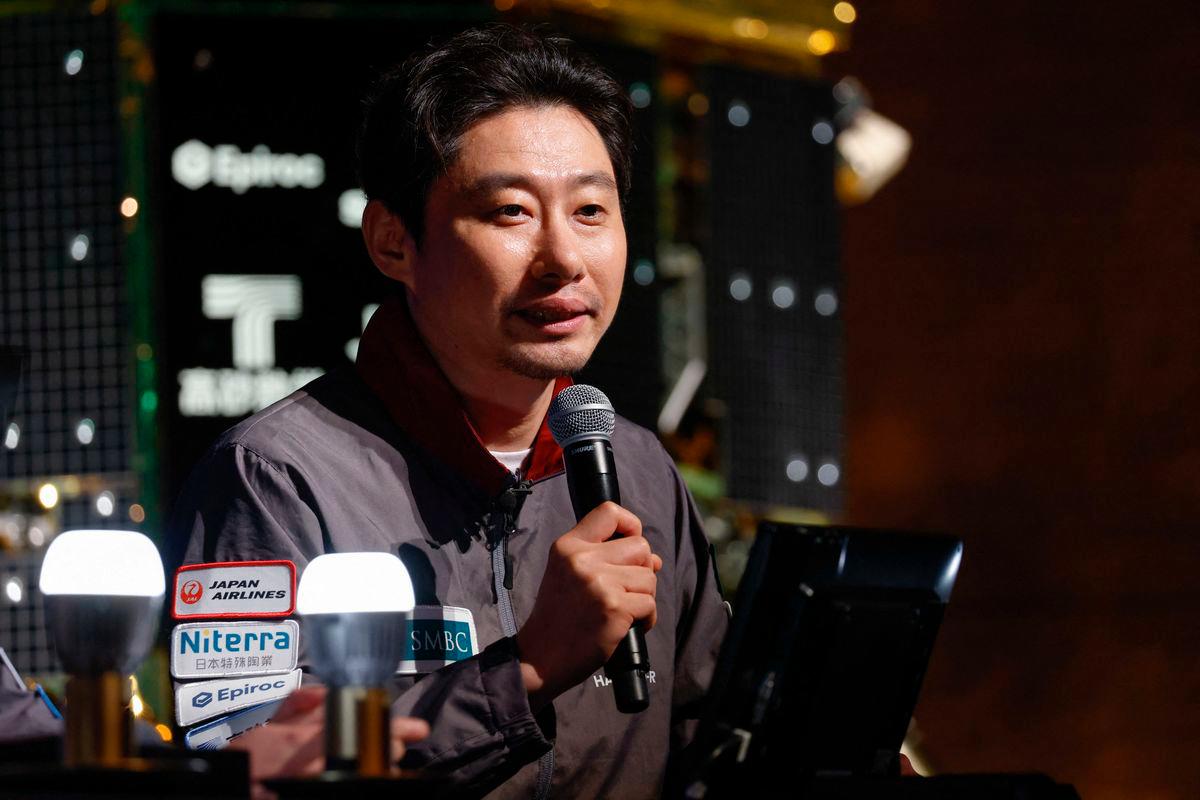TOKYO: Japan’s hopes of achieving its first soft landing on the Moon by a private company were dashed Friday when the mission was aborted over lost contact with the Resilience spacecraft during a daunting final descent.
Tokyo-based ispace had hoped to make history as only the third private firm -- and the first outside the United States -- to achieve a controlled touchdown on the lunar surface with its robotic lander.
But it decided to end the mission as “recovery of communication with the lander is unlikely”, CEO Takeshi Hakamada told reporters.
Resilience began falling during the landing attempt, and mission control fired the engines to slow it down, he said.
“We confirmed that the lander’s position moved to almost vertical”, but “after the planned landing time we were not able to receive data that confirms its landing”.
The failure comes two years after a prior mission ended in a crash.
Touchdown had been scheduled for 4:17 am Japan time on Friday (1917 GMT Thursday) on the Mare Frigoris region of the Moon’s northern hemisphere.
But the mood in mission control turned sombre, and around 15 minutes after the scheduled time, announcers on a livestream said attempts to communicate with the lander would continue.
They signed off with the message: “Never quit the lunar quest.”
On board the lander were several high-profile payloads: Tenacious, a Luxembourg-built micro rover; a water electrolyzer to split molecules into hydrogen and oxygen; a food production experiment; and a deep-space radiation probe.
The rover also carried “Moonhouse,“ a model home designed by Swedish artist Mikael Genberg.
- Lunar soil -
The mission had also aimed to collect two lunar soil samples and sell them to NASA for $5,000.
Though the samples would remain on the Moon, the symbolic transaction is meant to strengthen the US stance that commercial activity -- though not sovereign claims -- should be allowed on celestial bodies.
To date, only five nations have achieved soft lunar landings: the Soviet Union, the United States, China, India, and Japan.
Now, private companies are joining the race, promising cheaper and more frequent access to space.
Last year, Houston-based Intuitive Machines became the first private enterprise to reach the Moon. Though its uncrewed lander touched down at an awkward angle, it still managed to complete tests and transmit photos.
Then in March this year, Firefly Aerospace’s Blue Ghost -- launched on the same SpaceX rocket as ispace’s Resilience -- aced its lunar landing attempt.
Despite their rocket ride-share, Resilience took longer to reach the Moon than Blue Ghost, and ispace was now hoping for its own moment of glory, after its first mission resulted in an unsalvageable “hard landing” in 2023.
Landing on the Moon is highly challenging as spacecraft must rely on precisely controlled thruster burning to slow their descent over treacherous terrain.
Intuitive Machines’ second attempt at a Moon landing ended in disappointment in late March.
Its spacecraft Athena, designed to touch down on a spot called the Mons Mouton plateau -- closer to the lunar south pole than any previous mission -- tipped over and was unable to recharge its solar-powered batteries.









